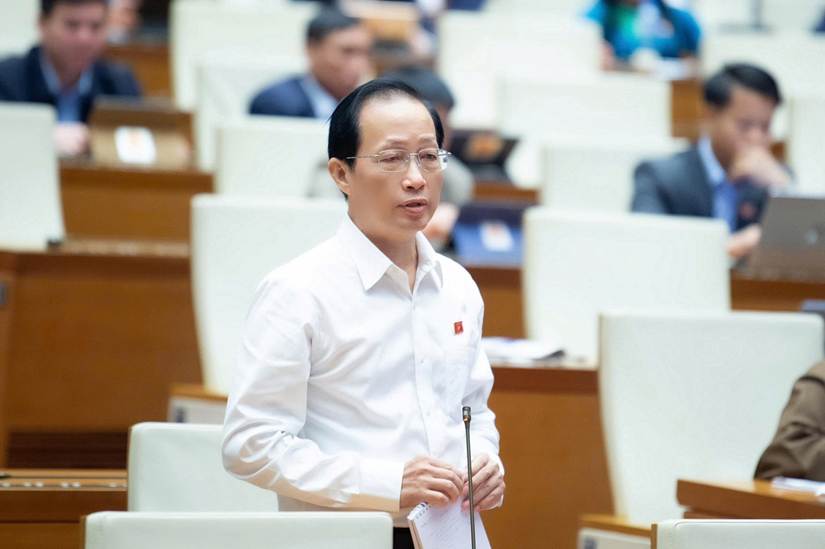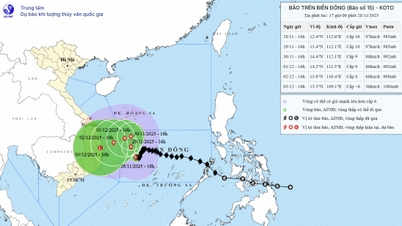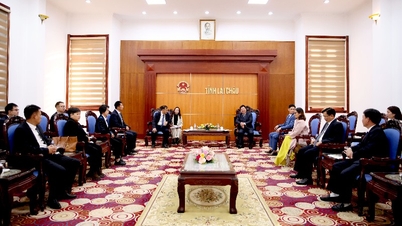On November 28, the 15th National Assembly continued the 31st working day of the 10th Session. In the morning, the National Assembly discussed in the hall the Draft Law on Planning (amended) and discussed the adjustment of the National Master Plan for the period 2021 - 2030, with a vision to 2050. In the afternoon, the National Assembly discussed the Draft Law on amending and supplementing a number of articles of the Law on Urban and Rural Planning.
 |
| Delegate Nguyen Truc Son - Member of the Provincial Party Standing Committee, Vice Chairman of Vinh Long Provincial People's Committee spoke at the Hall on the morning of November 28. |
Speaking at the discussion session, delegate Nguyen Truc Son - Member of the Provincial Party Standing Committee, Vice Chairman of the People's Committee of Vinh Long province, was interested in a number of contents related to the Draft Law on Planning (amended) as follows:
Regarding the synchronization of provincial planning after merger: Delegates expressed their high agreement with the revised contents of this draft law. Delegates stated that the discussion of the Planning Law at the present time is very necessary and very suitable for the context in which we have just merged and consolidated administrative units, especially provinces and cities. Under the direction of the Central Government, provinces and cities are urgently adjusting provincial planning and this law is the legal basis for new provinces and cities to adjust and supplement provincial planning. Delegates also expressed their agreement and appreciation for the drafting agency for carefully receiving and explaining the opinions of National Assembly deputies in the discussion group.
To ensure smooth and trouble-free implementation of the Law on Local Planning, delegates make the following additional contributions:
Firstly, in Article 5 of the draft Law on the planning system: Delegates raised the issue of reviewing national, regional and provincial planning types. Before the merger, we had more than 111 plans. Currently, after the merger, there are only 34 provinces and cities left. Therefore, the delegate requested that the national planning system (overall, technical sector, detailed) be reduced accordingly because the development space has changed. In particular, the delegate suggested that the central ministries and branches promptly review the list of projects expected to develop in the 2021 - 2030 planning period. According to the delegate, many pre-merger projects were pushed to the 2031 - 2040 period but are very necessary in the 2026 - 2030 period, especially when provinces and cities have merged, and need to be implemented quickly. The review of projects, especially national key projects, regional linkages that directly impact new provinces and cities, needs to be considered and accelerated to promote local socio -economic development.
Second , repositioning administrative centers and development space: The delegate also emphasized that when merging provinces and cities, if we still maintain the administrative, political, economic, social, and cultural centers as before, we will not effectively exploit the new space of those provinces and cities. Therefore, the delegate suggested that ministries and branches, especially the Ministry of Finance, need to guide localities to re-evaluate existing administrative and economic centers. If these centers are qualified or can be repositioned better, connecting the region and major development centers of the region and the whole country, adjustments need to be made immediately during the planning process.
Third, carefully study the transitional regulations: Delegates expressed their high approval of the new point in the draft law on decentralization and delegation of power because it is very clear which person and which agency will develop, appraise, approve and adjust the planning. However, delegates focused on issues related to the provisions on transition (Article 56), the provisions on amending, supplementing and abolishing a number of articles and clauses of laws related to planning (Article 57). Currently, all provinces and cities are adjusting their planning (even repeating new planning), while regional planning, national sectoral planning and national master planning have not been adjusted. In principle, lower-level planning must be consistent with higher-level planning (provinces must be consistent with regions, regions must be consistent with national technical planning/detailed planning or master planning). The delegates said that if the provinces have to approve the planning in December and the higher-level planning has not changed, the provinces may lose time to move to the higher-level planning, or the contents of the provincial planning that are "contrary" to the existing higher-level planning will be stuck. The delegates recommended that it is necessary to carefully study the effectiveness of the law and transition so that adjustments and amendments to local-level planning do not get stuck and have to be costly to amend when the higher-level planning changes.
Fourth, the proposal to retain the proposed project list: Regarding the project list, the delegates supported retaining the list in the planning. The delegates believed that the previous proposal of the Ministry of Finance and the Ministry of Planning and Investment on issuing the proposed list was very appropriate.
Explaining this point of view, the delegate emphasized that the planning must define projects (national or provincial level) to use investment resources during the planning period. If the project list is completely eliminated, capital control at the central level will be difficult, especially for central capital supporting the province. If the project is not shown in the planning list, submitting it to the central ministries and branches for appraisal of the capital balance capacity as well as the suitability of the planning will be difficult and have different interpretations.
Finally, regarding the inspection and review of planning (Article 47) on the organization of planning implementation, the delegate proposed to replace the word "action program" with the word "plan to implement the planning". The delegate said that planning needs to be specified by plans, especially at the local level, the socio-economic plan (divided into 2 periods, 5-year plan) and medium-term public investment, because using the word "plan" would be better than "action program" and is the result of the specific implementation of the planning by the provincial level.
HONG YEN (recorded)
Source: https://baovinhlong.com.vn/thoi-su/202511/can-nghien-cuu-ky-luong-cac-quy-dinh-chuyen-tiep-cua-luat-quy-hovach-giu-lai-danh-muc-du-an-caa3fdc/





































































































Comment (0)